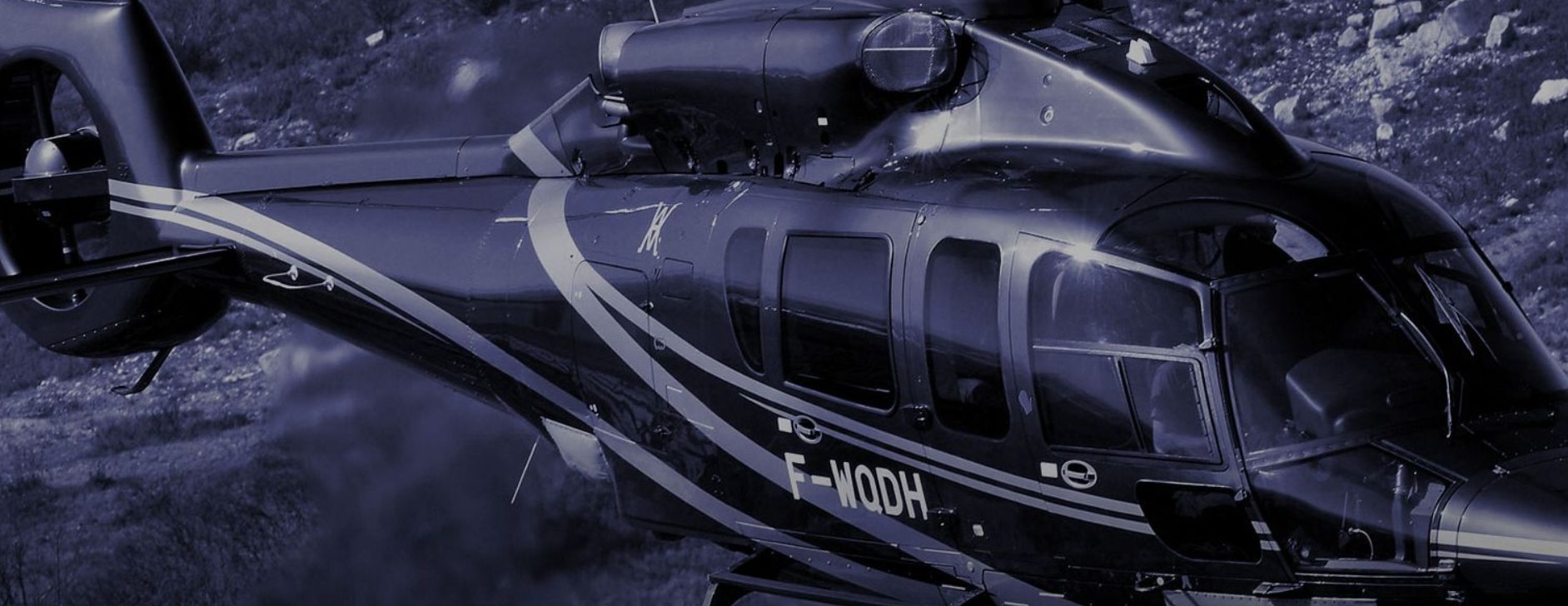Banks ‘should review helicopter assets as Covid-19 precaution’


Banks should review the value of their helicopter assets as a means of mitigating risks arising from the Covid-19 global pandemic, warns Jean-Marc Youkhana, owner and CEO of helicopter consultancy and brokerage Uplifting Aviation.
“The buck is going to stop if the bank ends up with the asset,” Youkhana told Helicopter Investor. “And, that’s when the very expensive problems start for the bank.”
On a scale of one to 10, Youkhana rates current problems in the helicopter market, caused by Covid-19, as a solid seven. “It’s bad,” he said. “Everybody in aviation is obviously impacted but for the helicopter sector, it’s a double whammy. The sector had just recovered from the oil and gas crisis of 2016 and could be dragged down again.”
While the helicopter market has benefited from significant restructuring – after the oil and gas crisis – Youkhana believes some banks may be particularly vulnerable to clients defaulting on their helicopter loan repayments.
To help banks avoid the nightmare scenario of witnessing their helicopter assets plummeting in value or being saddled with the lost income and costs of an aircraft repossession, Youkhana urged them to act now.
“It’s time to regroup. There’s been an earthquake, the building has shaken, where are the cracks and what is the damage?” To answer those questions, Youkhana recommends banks to review the value and liabilities of their assets, if necessary, sending a team to inspect the asset and its maintenance records, and devise a plan covering what to do next.
‘There’s been an earthquake’
Reviewing the value of the asset, covers not just the metal itself but the income arising from the asset and all its linked liabilities.
If there are serious concerns about individual aircraft, banks should send an independent professional team to appraise the condition of the asset at its operating base. “The team should include an engineer, a pilot, a broker and possibly even a lawyer. The devil is always in the detail and an engineer alone will not be able to survey the whole picture. He will understand the technical and regulatory side but not the commercial side, such as the finance deal and the commitment to deliver on contractual obligations,” said Youkhana.
Key questions concern the condition of the asset. Is it being stored properly? Is the aircraft hangered or stored outside in high humidity conditions, which could damage its value? Has maintenance been conducted on time and the proper protocols followed? Who is piloting the aircraft and is he, or she, a professional operator? Are the maintenance logs accurate and well-maintained?
After the physical review, what next? Should you carry on with the client or call it off and repossess the aircraft? Ask: what is your intention for this asset? Is it to lease the aircraft to a better client, to part it out or to sell it? The risk mitigation plan should include: protection of revenue streams, which could reach $40,000 to $50,000 a month for a light-medium twin turbine powered helicopter, the potential loss on the asset due to depreciation, the cost of maintenance and storage, the cost of retrofitting the aircraft and the logistics of returning the aircraft to a suitable location, which itself could amount to $300,000-$400,000 or much more.
‘A $50m asset reduced in value to $5m or less’
“It’s like playing chess. You need to think five or six moves ahead about what might happen if things go wrong,” said Youkhana. “Get it wrong and the banks could easily see a $50m asset reduced in value to $5m or less. So, it pays to make the right decisions as quickly as possible.”
It was too early to gauge the full impact of the Covid-19 crisis on the helicopter sector, said Youkhana. But he identified two sectors that might prove more vulnerable than others. Those were the UK air ambulance market, which is heavily reliant on donations from the public, and VIP charter flights.
“Operators need £2m per helicopter from public donations to survive. In Europe such services are government funded but in Britain, public donations are very important,” he said. “If people are feeling the pinch, the first thing to go is charity donations. So, I’m quite concerned to see how this will go.”
VIP charter operations was another area that was vulnerable to the impact of Covid-19. “Nobody is going to fly to Ascot this year or the other corporate hospitality bread-and-butter events for helicopter,” said Youhana. “Also, will the same number of people want to take sight-seeing flights over the Cote d’Azur, or over the Grand Canyon in the US as last year?” he asked.
VIP charter operations
“In the UK, anyone who operates an AOC [air operator’s certificate] charter operation is probably going to have to shrink the number of their employees and negotiate with the owner [of the helicopter] to try to keep their helicopters in their fleets to survive.” But, on a more positive note, at least these operators do not have to carry the whole ownership cost of making mortgage or loan repayments, he added. Read more about Uplifting Aviation’s consultancy and brokerage services here.
Meanwhile, more than 41% of delegates at Helicopter Investor’s Town Hall online meeting today were optimistic about the prospects for helicopter markets for the remainder of this year. Register for your free place at the one-hour event here.
How banks should mitigate risks
- Conduct a thorough asset review
- If necessary, send an independent team to physically inspect the asset and its maintenance records
- Devise a plan covering what to do next.
Source: Jean-Marc Youkhana, Uplifting Aviation.

Jean-Marc Youkhana






